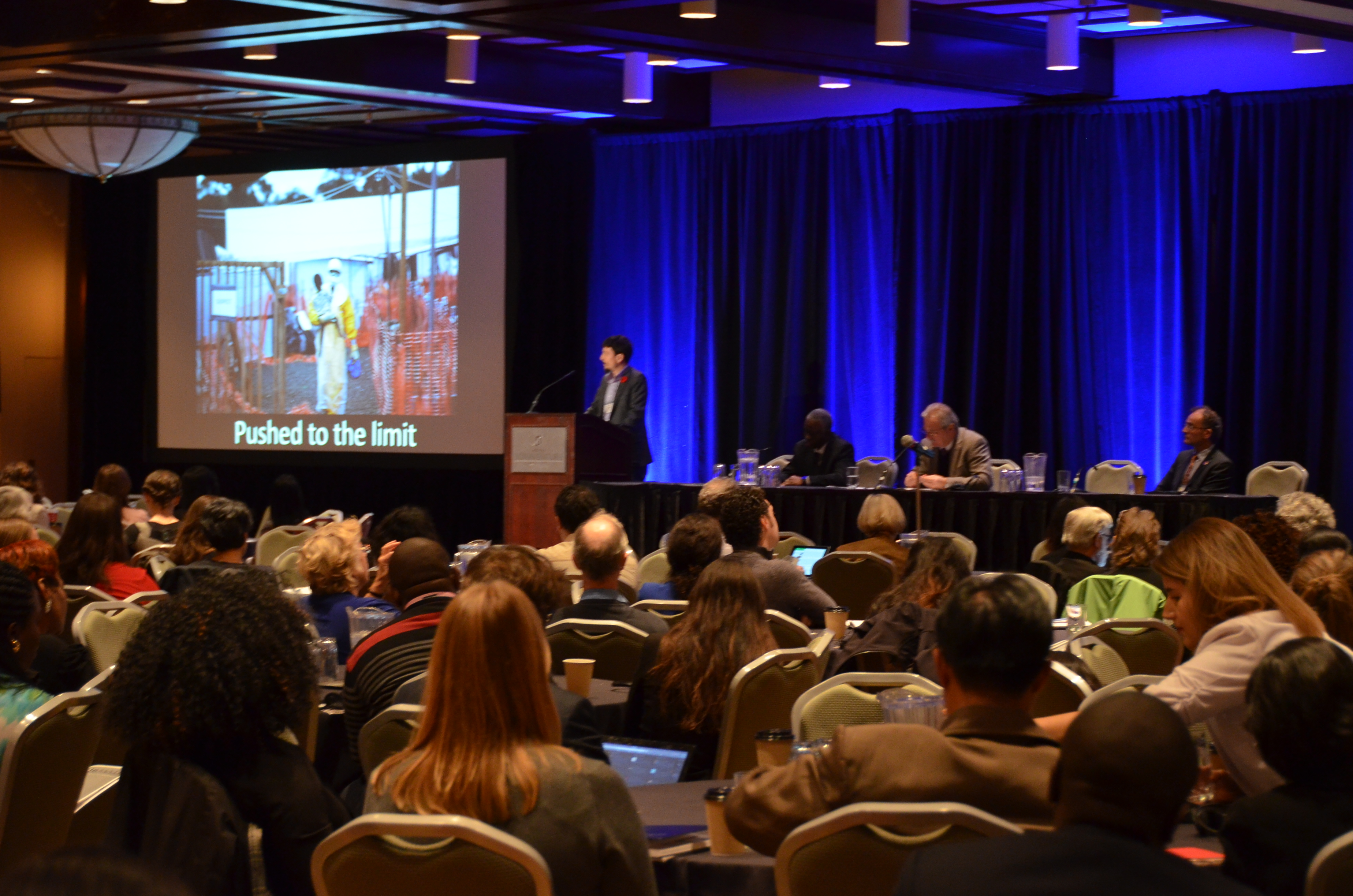Hossam Elsharkaw, Director of Emergencies and Recovery from Canadian Red Cross summarized their experience during the Ebola crisis in West Africa as ‘we learn lessons but often fail to translate to action when needed’. He said there were substantial delays in responding to the Ebola crisis, pointing to denial from government and international agencies, lack of will, the lack in preparedness, and systems failure at the local level. The cholera outbreak in Haiti after the earthquake in 2010 was similar in many ways; the earthquake in Nepal as well as social and political disasters in the Middle-east created humanitarian crises where the Red Cross and other allies faced enormous challenges. We know that after a disaster, the local health system breaks, infrastructure is demolished, staff dies, and local non-state organizations lack resources of all kinds. Dependence on international rescue is required. There comes lot of frustration during humanitarian crises including disease epidemics like Ebola, but it is the people and individuals who make a difference. “We have seen it and continue to do so,” said Hossam.
Steve Cornish, Canadian Executive Director, Doctors Without Borders (MSF) connected the recent Ebola epidemic with a ‘Perfect storm hypothesis’ in his presentation as second speaker. He highlighted the major challenges at the individual and structural levels, including the downplaying of the crisis by the WHO and local government, leadership gaps, lack of preparedness, limited response, lack of coordination, shifting of priorities, cultural beliefs and behavioural factors related to burial and care. He also stressed that spread of infection to Europe and North America redirected attention and efforts from the containment of infection in West Africa, with a daunting effect. Healthcare efforts in other areas were also impacted; for example, antenatal and pregnancy care were neglected but emerged as a priority because of fear of fetal transmissions.
Professor Mandy Kader Konde, Director, Institute of Research Guinea, believed that ‘research and development helped evidenced based action’ during 2013-2014 Ebola outbreaks in West Africa. Their institute collaborated with MoH, WHO, CDC, Plan Guinea, and Save the children to investigate the outbreak and generate research evidence for immediate action. Between December 2013 to June 2015, 3806 cases were detected, of them 2536 (67%) died. During the same time, 211 healthcare workers were diagnosed with Ebola and 115 (55%) died. Institute’s research and development (R&D) portfolio included case management, surveillance, contract tracing, and laboratory diagnostic services. They operated R&D activities through anEbola research committee, ethics committee, regulation committee and collaboration committee. Their research priorities included therapeutic clinical trials to identify effective treatment, vaccine trials, diagnostic product trials and knowledge dissemination. They realized that long-term collaboration is required, as well as capacity building in terms of human resources and infrastructure, engaging leadership and ownership, and regional framework of multicentre studies on therapeutic, vaccine and diagnostic research to effectively control and help manage an epidemic.

